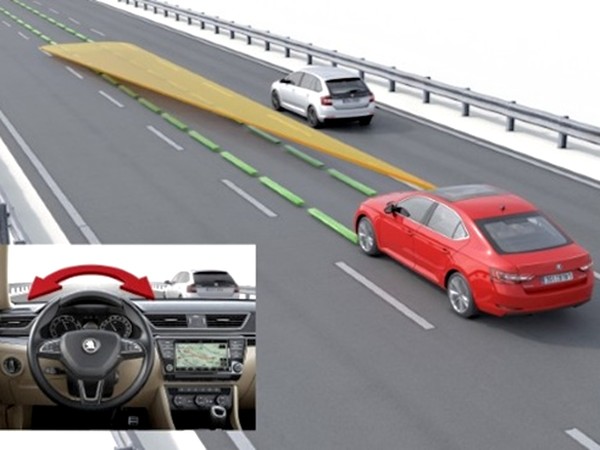Advanced driving assistance systems are no guarantee of traffic safety. This has been proved by an investigation by experts from Palacký University and the Czech Academy of Sciences, who have created a new instructional system for drivers, driving schools, and automobile dealers.
In the project “Adaptation of people to advanced assistance systems for drivers of motor vehicles”, experts from the UP Faculty of Arts and the Institute of Information Theory and Automation, Czech Academy of Sciences, mapped what positive and negative impact driving assistance systems have on traffic safety. These include adaptive cruise control, forward collision warning, lane departure warning systems, blind spot monitors, driver drowsiness detection, parking sensors, and automobile navigation systems.
“We determined that the newly-developed intelligent systems do not necessarily increase traffic safety. The theory of risk compensation of states that drivers count on a certain level of risk while driving. If there are safety systems in use, it can happen that drivers unconsciously behave in a more dangerous manner. A typical example of this is ABS,” said Matúš Šucha, Head of the Department of Psychology at the UP Faculty of Arts and the project leader. According to Šucha, too much information from intelligent systems can significantly influence the driver’s attention and his or her immediate reactions.
The goal of the extensive research project by UP and CAS experts was to develop instructional materials for drivers and thus improve traffic culture in the country.
“And we did. The result of our work is an effective knowledge foundation which can be used for information campaigns by state institutions, driving schools, and automobile manufacturers. These campaigns ought to accompany the introduction of advanced driving assistance systems in automobiles. We are making available to their creators – and everyone else – unique interactive educational software, educational videos, handbooks for driving schools, and lots of information for automobile dealers,” the UP transport psychologist added.
The project was created in cooperation with the Department of Psychology, UP Faculty of Arts, and the Czech Academy of Sciences. The research, in which 526 people in various age groups took part, was funded by the Czech Technology Agency. More information is available here (in Czech).
